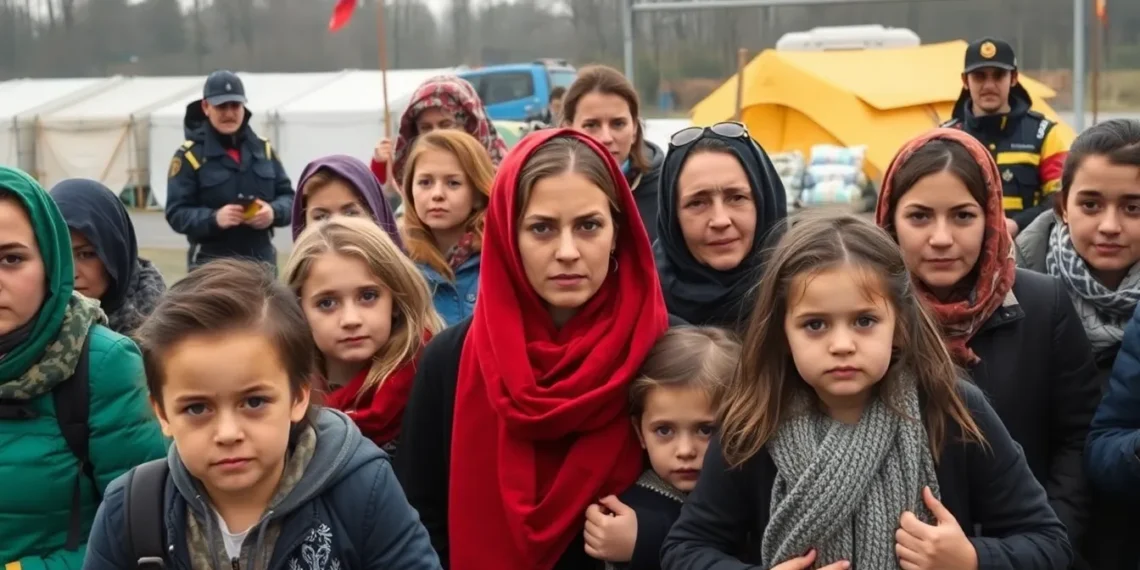The cost of the Ukraine war isn’t just a number on a spreadsheet; it’s a staggering figure that keeps climbing like a cat on a hot tin roof. As the conflict rages on, the financial implications are making even the most seasoned economists raise their eyebrows and reach for their calculators. From military expenditures to humanitarian aid, the expenses are enough to make anyone’s wallet weep.
But it’s not just about dollars and cents. The war’s impact stretches far beyond Ukraine’s borders, affecting global markets and geopolitical dynamics. Think of it as a game of chess where each move costs more than just a pawn—it’s a high-stakes match that could leave countries scrambling for resources. So, buckle up as we dive into the eye-watering costs of this ongoing conflict and explore what it really means for the world at large.
Overview of the Cost of Ukraine War
The financial implications of the Ukraine war are extensive and multifaceted. Military expenditures alone have escalated dramatically since the conflict’s onset. Estimates suggest that Ukraine’s military spending reached approximately $30 billion in 2022. This figure denotes an increase of nearly 50% compared to previous years.
Humanitarian costs also play a critical role in the overall expenses associated with the war. Millions of people have been displaced, generating significant demands for aid and support. Reports indicate that over 7 million Ukrainians fled their homes, contributing to rising humanitarian needs across Europe. Countries like Poland and Germany have taken in large numbers of refugees, which puts additional pressure on their economies.
Global markets feel the strain as well. The war affects energy supplies, leading to soaring prices for oil and gas. Data show that European gas prices spiked by over 300% between January 2021 and March 2022. These fluctuations create ripple effects across economies, influencing everything from consumer prices to inflation rates.
Geopolitical dynamics shift in response to these economic impacts. Nations reassess their defense budgets and foreign policies in light of the conflict. For instance, NATO member countries have increased military spending in response to the heightened threat, leading to a collective commitment of around $130 billion in 2022.
The costs associated with the Ukraine war encompass military and humanitarian expenditures while influencing global markets and geopolitical strategies.
Economic Impact on Ukraine
The economic impact of the Ukraine war is profound and far-reaching, affecting various sectors and communities throughout the country.
Infrastructure Damage
Infrastructure damage poses significant challenges for Ukraine’s recovery efforts. Estimates indicate that over $100 billion in damages has occurred, affecting transportation systems, energy networks, and public facilities. Rebuilding these critical structures is essential for restoring normalcy and stimulating the economy. Areas like Kyiv, Kharkiv, and Mariupol show the worst destruction, with entire neighborhoods rendered uninhabitable. Rehabilitation demands substantial investment that exceeds current funding capacities, complicating the path to recovery.
Displacement and Humanitarian Costs
Displacement and humanitarian costs have surged due to the war. Approximately 8 million Ukrainians have been displaced internally, with millions seeking refuge in other countries. This mass displacement leads to increased demand for housing, healthcare, and education, creating urgent humanitarian needs. Various organizations estimate that aid contributions required to address these challenges exceed several billion dollars annually. The situation places immense pressure on host countries and strains international resources, complicating coordinated relief efforts.
Global Economic Consequences
The Ukraine war triggers complex global economic consequences that ripple across various sectors.
Energy Prices and Supply Chains
Energy prices have skyrocketed due to the war, with European gas prices increasing over 300% between January 2021 and March 2022. Supply chains face disruption as critical exports, particularly grains and fuels, become limited. A notable impact includes reduced availability of wheat, where Ukraine contributes about 10% of global supplies. Nations dependent on imports experience inflationary pressure, directly affecting food prices and availability. Affected industries include agriculture, logistics, and manufacturing, each grappling with increased costs and uncertainty. Adjustments in energy sources lead countries to explore alternatives, which adds to supply chain complexity.
International Aid and Support
International aid plays a crucial role as countries rally to support Ukraine. Humanitarian assistance demands surge as approximately 8 million Ukrainians flee their homes, creating urgent needs for shelter, healthcare, and education. Support from various nations, especially Poland and Germany, emphasizes the humanitarian crisis’s gravity, with several billion dollars projected annually to meet these challenges. Aid packages often encompass food, medical supplies, and financial resources, each essential for maintaining stability and addressing the enormous burden on host countries. Countries reevaluate their foreign policies and responsibilities, which influences their international relationships moving forward.
Political Ramifications
The Ukraine war has instigated significant political changes, reshaping alliances and influencing military priorities in various countries.
Changes in Geopolitical Alliances
Tensions have prompted nations to reconsider their alliances. Eastern European countries are forging closer ties with NATO member nations, demonstrating a unified front against perceived threats. Sweden and Finland’s aspiration for NATO membership reflects a growing desire for collective security. Furthermore, traditional relationships among Western powers are strengthening, as cooperation in defense initiatives increases. Diplomatic engagements are on the rise, highlighting the necessity of solidarity in uncertain times. These shifts in geopolitical allegiances produce long-term effects on global stability.
Military Spending in Neighboring Countries
Military expenditure among neighboring nations has surged in direct response to the war. Poland has increased its defense budget by approximately 24% in 2022, aiming to enhance military readiness. The Baltic states, feeling heightened vulnerabilities, are prioritizing investments in their armed forces. Hungary and Romania have also bolstered their military spending as a precautionary measure. Regional defense strategies are evolving, as countries work to fortify their capabilities amidst emerging threats. The ongoing conflict influences budget allocations, with many nations doubling down on their defense commitments to ensure preparedness for potential future conflicts.
Long-Term Projections
Long-term projections regarding the cost of the Ukraine war indicate significant challenges ahead. The expenses related to reconstruction could surpass $100 billion, reflecting extensive damage to infrastructure and essential services.
Potential Costs of Reconstruction
Rebuilding cities like Kyiv and Mariupol demands considerable financial investment. Estimates suggest that infrastructure repair, including roads and hospitals, may consume $40 billion alone. The cost of housing displaced individuals also poses a substantial burden, with projections estimating that it could reach $25 billion. As essential services deteriorate, urgent restoration of healthcare and education systems further compounds these financial requirements. Coordination among international donor countries becomes crucial in addressing these mounting reconstruction costs.
Economic Recovery Strategies
Developing effective economic recovery strategies is vital for Ukraine’s long-term stability. Diversifying the economy to reduce reliance on agriculture, while fostering technological innovation, remains a priority. Establishing partnerships with international organizations can facilitate investment, enhancing growth opportunities. Fund allocation targeting small and medium enterprises supports job creation and boosts economic resilience. Moreover, implementing sustainable energy initiatives can reduce dependency on foreign energy sources while stimulating domestic production. Primarily, strategic planning will be essential for navigating the road to recovery and achieving sustainable growth.
Profound Financial and Humanitarian Challenges
The ongoing Ukraine war presents profound financial and humanitarian challenges that extend far beyond its borders. As military and humanitarian costs continue to rise the implications for global markets and geopolitical dynamics are significant. The urgent need for reconstruction and aid highlights the responsibilities of the international community in supporting Ukraine’s recovery.
Shifts in defense priorities and alliances reflect a changing global landscape. Countries are reassessing their strategies to address both immediate and long-term needs. The road ahead will require coordinated efforts and substantial investment to rebuild affected areas and support displaced populations. As nations navigate this complex situation the focus on sustainable recovery will be crucial for Ukraine’s future stability and growth.







